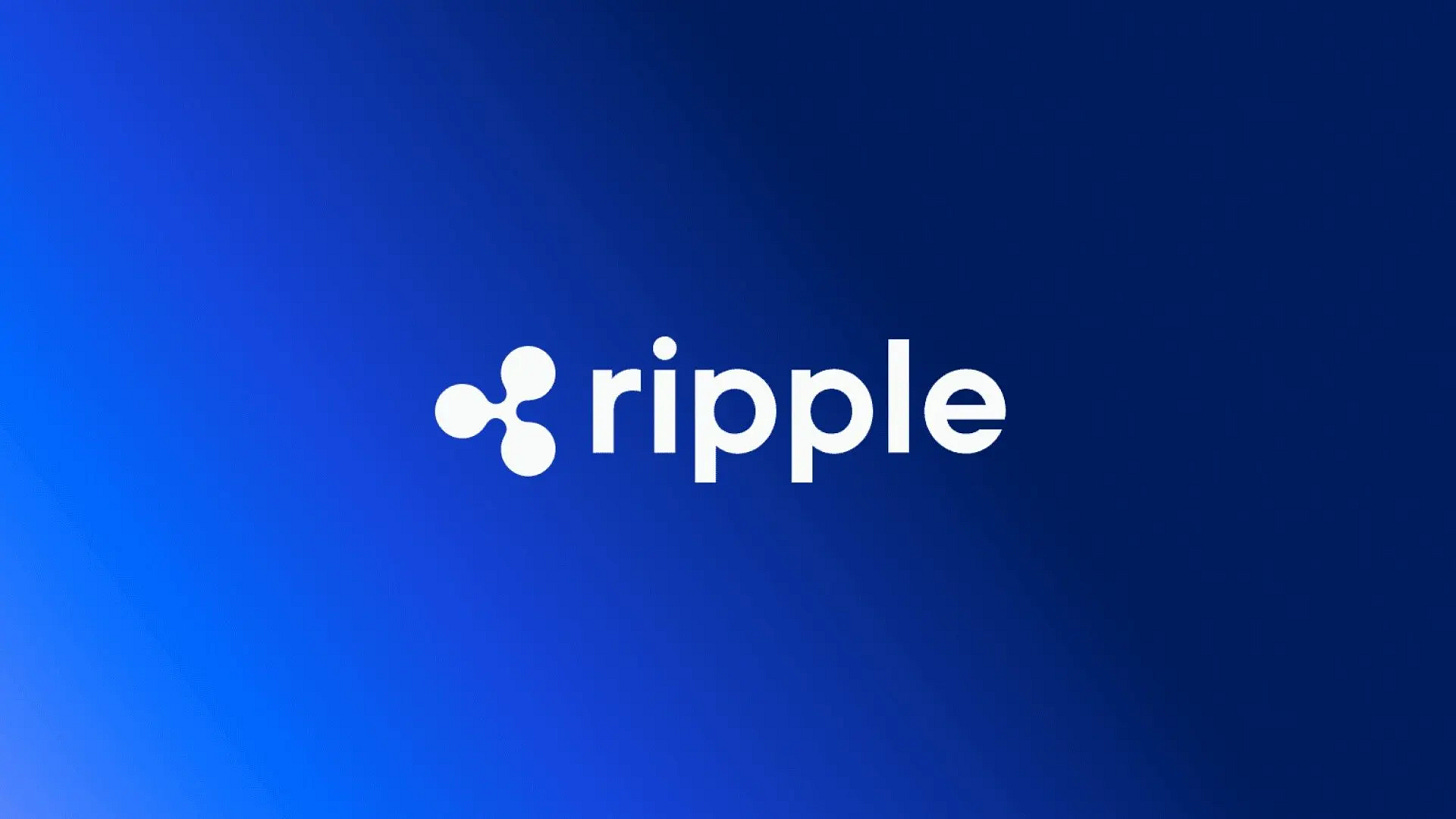Paytm’s AI-first travel app to win conversational commerce 🤖🧳; Ripple’s $500M fundraise signals institutional crypto infrastructure's gaining momentum 😳💸; Coinbase to buy BVNK for $2B? 🤔🪙
You're missing out big time... Weekly Recap 🔁
👋 Hey, Linas here! Welcome back to a 🔓 weekly free edition 🔓 of my daily newsletter. Each day, I focus on 3 stories that are making a difference in the financial technology space. Coupled with things worth watching & most important money movements, it’s the only newsletter you need for all things when Finance meets Tech.
If you’re not a subscriber, here’s what you missed this week:
The Ultimate List of Resources about Stablecoins 🪙 [your one-stop resource list for understanding the most disruptive force in global finance]
The Ultimate LLM Toolkit for Unleashing AI Innovation 🤖📚 [100+ battle‑tested tools and frameworks to accelerate your AI projects and stay ahead in the LLM race]
Agents 20: Top AI Agent Startups of 2025 🤖💸 [these AI Agent startups are defining 2025. Find who’s backing them, unlock their exclusive pitch decks, and learn from the best]
Brex’s AI Agents signal the arrival of autonomous corporate finance 🤖💳 [what’s the USP here & why it could be huge + top AI Agent startups of 2025 & the agentic AI survival guide inside]
The Coinbase Paradox: fortress-building at lightning speed, but is the market paying for perfection? 🤔📈 [impressive 3Q 2025 earnings and fortress-building at lightning speed, but is the market paying for perfection? + more bonus deep dives into other finance heavyweights inside]
Shopify’s Growth Engine fires on all cylinders 🔥🛍️ [breaking down their most important 3Q 2025 numbers, understanding what they mean, and what’s next for Shopify]
Robinhood’s epic transformation: from millennial trading app to diversified financial powerhouse 😳📊 [deep dive into their 3Q 2025 financials, breaking down the most important numbers, what they mean and what’s next for RH + bonus dive into its biggest competitor Coinbase inside]
SoFi’s 3Q 2025: a FinTech unicorn executing on all cylinders, but valuation leaves no room for error 🦄📊 [breaking down their key 3Q 2025 numbers, understanding what they mean, what’s next & whether SoFi is worth your time and money in 2025 and beyond]
The 75% Problem, or How This AI Startup Raised $13M in One Week 💸🤖 [How ex-Monzo founders are automating the complex customer operations work financial services companies thought impossible 📈]
This AI startup simulated human behavior better than Claude and ChatGPT, then raised $5.35 million 🤖🧠 [inside Artificial Societies’ masterclass in conviction-driven fundraising & how to sell an impossible future]
The Pitch Deck That Won $16M in the AI Agent Gold Rush 🤖💸 [how StackAI positioned itself as the bridge between cutting-edge AI and non-technical enterprises]
As for today, here are the 3 incredible FinTech stories that are transforming the world of financial technology as we know it. This was yet another wild week in the financial technology space, so make sure to check all the above stories.
Paytm’s AI-first travel app to win conversational commerce 🤖🧳
The news 🗞️ India’s FinTech giant Paytm has just unveiled Checkin, a standalone AI-powered travel booking application that represents a fundamental strategic shift for the Indian payments heavyweight.
Rather than treating artificial intelligence as merely an operational efficiency tool, Paytm is positioning AI as a core revenue driver through conversational commerce.
Let’s take a closer look at this, understand what it’s all about, and what this means for the future.
More on this 👉 Paytm Checkin distinguishes itself through an in-app AI assistant that transforms travel planning from traditional search-and-click interfaces into natural language conversations. Users can book flights, trains, buses, and metro passes across twelve Indian languages while receiving personalized recommendations based on their travel history and preferences.
The application offers transparent pricing with zero convenience fees, addressing common friction points in India’s online travel market, which is projected to reach $125 billion by 2027.
Zoom out 🔎 The launch comes as Paytm recovers from regulatory setbacks, including Reserve Bank of India restrictions on its payments bank earlier this year. CEO Vijay Shekhar Sharma has been explicit about treating AI as a revenue line item rather than just a cost optimization tool, with plans to introduce subscription-based AI services that could fundamentally change how fintech companies monetize their platforms.
The technical foundation rests on Paytm’s partnership with Groq, whose Language Processing Units enable real-time AI inference at scale. This infrastructure powers not only Checkin’s conversational interface but also extends across Paytm’s ecosystem, including merchant analytics, fraud detection, and multilingual customer support.
THE TAKEAWAY
What’s next? 🤔 Paytm Checkin signals another moment in the convergence of financial services and artificial intelligence. The application serves as a proof of concept for how fintech companies can leverage AI to expand into adjacent verticals while creating recurring revenue streams through subscription models. If successful, this approach could fundamentally reshape the competitive landscape in several ways. First, the shift from transaction-based revenue to subscription-based AI services addresses a critical challenge facing payment platforms as transaction fees compress toward zero. By offering AI-powered personalization worth paying for monthly, fintech companies can build more predictable, higher-margin revenue streams. Paytm’s integration of travel data with its existing payment and merchant infrastructure creates a data moat that pure-play travel agencies cannot replicate, enabling cross-selling of financial products like insurance, credit, and investment options at moments of maximum relevance. Second, the conversational commerce model pioneered in Checkin could extend far beyond travel. The same AI assistant framework that understands travel intent can be adapted for healthcare financing, education planning, real estate transactions, and wealth management. This verticalization strategy allows fintech companies to escape the commoditization of horizontal payment rails by delivering domain-specific intelligence that commands premium pricing. Third, the multilingual AI capability addresses a massive market opportunity in India’s diverse linguistic landscape. By supporting 12 languages, Paytm can reach underserved non-English speaking users, potentially expanding financial inclusion at scale. This approach to democratizing sophisticated services through natural language interfaces could become the template for emerging markets globally. Irrespective of how this plays out, it’s getting clear that the competitive battlefield is now shifting from just distribution and network effects to the quality of personalized intelligence and the seamlessness of embedded financial services.
ICYMI: Brex’s AI Agents signal the arrival of autonomous corporate finance 🤖💳 [what’s the USP here & why it could be huge + top AI Agent startups of 2025 & the agentic AI survival guide inside]
Ripple’s $500 million fundraise signals institutional crypto infrastructure is gaining momentum 😳💸
The news 🗞️ Ripple has just secured $500 million in a strategic funding round at a whopping $40 billion valuation, marking a significant milestone in the convergence of traditional finance and digital assets.
The investment round was led by affiliates of Fortress Investment Group and Citadel Securities, with participation from prominent firms including Pantera Capital, Galaxy Digital, Brevan Howard, and Marshall Wace.
Let’s take a quick look at this, see why it matters, and what’s next for Ripple.
More on this 👉 The funding represents a dramatic validation of Ripple’s evolution from a payments-focused blockchain company into a comprehensive institutional digital asset infrastructure provider. The capital will accelerate expansion across custody solutions, prime brokerage services, and stablecoin operations, particularly its RLUSD stablecoin, which has surpassed $1 billion in market capitalization within a year of launch.
This investment follows a period of strategic transformation for Ripple, which has completed six major acquisitions in just over two years, including Hidden Road for $1.25 billion and GTreasury for $1 billion. The company has processed more than $95 billion in payment volumes through its blockchain network and now holds 75 regulatory licenses globally.
The participation of established Wall Street institutions signals growing institutional confidence in blockchain infrastructure, particularly following the passage of the GENIUS Act, which established the first comprehensive federal framework for stablecoin regulation.
Zoom out 🔎 The timing proves especially favorable, as the SEC recently ended its long-running case against Ripple, removing a significant regulatory overhang.
Ripple is now collaborating with WebBank, Mastercard, and Gemini to explore blockchain-based settlement of card transactions using RLUSD, demonstrating real-world utility for compliant stablecoins in mainstream financial operations.
THE TAKEAWAY
What’s next? 🤔 First and foremost, this funding positions Ripple at the forefront of an emerging institutional digital asset ecosystem that could fundamentally reshape global financial infrastructure. The involvement of sophisticated institutional investors like Fortress and Citadel suggests that blockchain-based payment rails and regulated stablecoins are transitioning from speculative ventures to core financial infrastructure investments. For Ripple specifically, the capital provides resources to accelerate market share gains in the rapidly expanding stablecoin sector, which analysts project could reach $10 trillion by 2030. The company’s regulatory compliance advantage, bolstered by GENIUS Act frameworks, creates a competitive moat as institutions increasingly demand transparent, regulated digital asset solutions. Further consolidation through strategic acquisitions appears likely, particularly in areas like tokenized real-world assets and artificial intelligence-driven treasury management. Looking at the bigger picture, we must note that the broader stablecoin market faces a critical inflection point. Tether’s market dominance has declined from 69% to 60% as regulated alternatives gain traction, suggesting a flight to quality driven by institutional adoption and regulatory requirements. Ripple’s success validates this trend and will likely intensify competitive pressure on both established players like Circle and emerging entrants to enhance compliance frameworks and institutional service offerings. The convergence of regulatory clarity, institutional capital, and proven infrastructure could further accelerate the migration of traditional cross-border payment volumes onto blockchain rails.
ICYMI:
Coinbase to buy BVNK for $2 billion? 🤔💰
The news 🗞️ Digital assets giant Coinbase is currently in advanced negotiations to acquire BVNK, a London-based stablecoin infrastructure provider, in a transaction valued at approximately $2 billion.
The deal, which could close in late 2025 or early 2026 pending due diligence, represents one of the largest strategic moves in the stablecoin payments sector and signals Coinbase’s commitment to diversifying beyond its traditional trading fee revenue model.
Let’s take a look at this.
More on this 👉 Founded in 2021, BVNK has established itself as an infrastructure provider for enterprise stablecoin payments, processing over $20 billion in annual payment volume. The company enables businesses to send, receive, and manage both fiat and stablecoin transactions across multiple blockchains and traditional payment rails.
BVNK serves clients including Worldpay, Deel, and Flywire, and holds regulatory licenses across 50 U.S. states plus some international markets.
Zoom out 🔎 The acquisition follows the passage of the GENIUS Act in July 2025, which provided the first comprehensive U.S. regulatory framework for stablecoins. This regulatory clarity has catalyzed significant deal activity, with traditional payment networks including Visa and Mastercard aggressively pursuing stablecoin capabilities. Mastercard was reportedly in competition with Coinbase for BVNK before ultimately deciding to acquire Zerohash instead (this deal is reportedly in the final stages as per Fortune).
For Coinbase, the strategic rationale centers on revenue diversification. Stablecoins generated $355 million in revenue during the third quarter of 2025, representing 20% of total company revenue. This income stream has proven more resilient than volatile trading fees, which fluctuate dramatically with cryptocurrency market cycles.
THE TAKEAWAY
What’s next? 🤔 At the core, this acquisition positions Coinbase to fundamentally transform from a cryptocurrency exchange into a comprehensive payments infrastructure provider. The integration of BVNK’s enterprise-grade capabilities would enable Coinbase to compete directly with traditional payment processors like Visa and Stripe, particularly as stablecoin adoption accelerates among businesses seeking lower-cost, faster cross-border payment solutions. Looking at the bigger picture, as stablecoin transaction volumes continue growing, control of payment infrastructure becomes increasingly strategic. Traditional financial institutions now face competitive pressure from crypto-native players who can offer dramatically lower transaction costs while maintaining regulatory compliance. That said, we should expect intensified competition between Coinbase and Stripe, particularly following Stripe’s $1.1 billion Bridge acquisition and launch of its Tempo blockchain. On top of that, the traditional payment networks will likely accelerate their own stablecoin initiatives or pursue additional acquisitions to remain competitive (case in point - Mastercard, or Visa that’s also an investor in BVNK). Finally, regulatory frameworks will continue evolving as stablecoin payment volumes grow, potentially creating opportunities for compliant infrastructure providers while raising barriers for smaller competitors. All in all, the critical question is whether Coinbase can successfully integrate BVNK’s enterprise-focused business model with its crypto-native operations. If executed effectively, this acquisition could establish Coinbase as a dominant player in the emerging stablecoin payments ecosystem, capturing value as global payment flows migrate from legacy banking rails to blockchain-based infrastructure.
ICYMI: The Coinbase Paradox: fortress-building at lightning speed, but is the market paying for perfection? 🤔📈 [impressive 3Q 2025 earnings and fortress-building at lightning speed, but is the market paying for perfection? + more bonus deep dives into other finance heavyweights inside]
🔎 What else I’m watching
Worldline and Fipto Explore Stablecoin Payments 🪙 French payments processor Worldline has partnered with fintech Fipto to integrate stablecoins into European payment systems. This collaboration aims to demonstrate the coexistence of digital assets and traditional payment methods, offering merchants and banks more payment options. Worldline seeks to develop a European alternative to USD-based stablecoins, with Fipto bringing regulatory approvals from France and Luxembourg. The partnership aims to enhance payment efficiency and resilience, accelerating the adoption of digital payment solutions in Europe. ICYMI:
Expensify Launches Hybrid AI Agent 🤖 Expensify has introduced an upgraded version of its Concierge support system, combining AI with human expertise to manage expenses via chat, email, and text. The new Concierge understands natural language commands, corrects expense details, flags suspicious receipts, and learns from user behavior. Expensify emphasizes the importance of context and collaboration between humans and AI for more personalized and accurate expense management. ICYMI:
EU Probes Deutsche Börse and Nasdaq for Collusion 🔍 The European Commission has launched an antitrust investigation into Deutsche Börse and Nasdaq over potential collusion in the listing, trading, and clearing of financial derivatives. The probe follows inspections in 2024 and focuses on agreements that may have restricted competition, allocated demand, and coordinated prices. Deutsche Börse maintains the position that the cooperation was pro-competitive and approved by authorities.
💸 Following the Money
ACI Worldwide has acquired Payment Components, a European provider of financial messaging and open banking technology for A2A payments.
Stablecoin-enabled payments infrastructure platform Zynk raises $5M from Coinbase Ventures and others.
Paradigm leads $6M seed round for Harmonic, aiming to help Solana reach Nasdaq speed.
👋 That’s it for today! Thank you for reading, and have a relaxing Sunday! And if you enjoyed this newsletter, invite your friends and colleagues to sign up:







This is absolute gold - thank you sir for all your great work